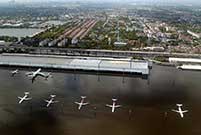

TEHRAN, Dec. 31 -- Iran will respond to any new U.S. sanctions and interfering measures over its defensive missile program, Iranian Foreign Ministry Spokesman Hossein Jaber Ansari said here on Thursday.
U.S. Treasury Department announced Wednesday that it was considering sanctions against a number of Iranian and international individuals and agencies for their alleged involvement in developing Iran's ballistic missile program. The U.S. move can be a response to Iran's recent test of a ballistic missile.
"Such a move is illegal, unilateral and tactless, and Iran has already noted this point to the United States," Jaber Ansari was quoted as saying by official IRNA news agency.
"Iran's missile program has nothing to do with the recent agreement over Iran's nuclear program, and nothing can prevent Iran from its legitimate and legal right to strengthen its defensive foundations and national security," he said.
In October, Iran announced the tests of long-range Emad missile which could be guided and controlled until hitting the target with high precision.
Later, Iran's Defense Minister Hossein Dehqan said the Emad missile was "totally conventional," dismissing a United Nations experts' report in December that Iran violated the UN Security Council Resolution 1929 by test-firing the Emad missile capable of delivering a nuclear warhead.
The UN report said the Emad ballistic missile has a range of "no less than 1,000 km with a payload of at least 1,000 kg."
Under Resolution 1929, Iran is prohibited from working on ballistic missiles capable of delivering nuclear warheads.
Dehqan also said the October test was based on Iran's own interests for enhancement of its deterrent power. "Iran will not accept any restrictions in this regard," he added.
Tehran is believed to have the largest ballistic missile arsenal in the Middle East and has developed a 2,000-km missile.
Iran and six world powers -- Britain, China, France, Germany, Russia and the United States -- signed a historic nuclear deal in July to imposes limits on the Iranian nuclear program in return for lifting of economic sanctions.
Under the deal, Iran will also receive natural uranium from Russia and Kazakhstan to be used in nuclear reactors for future energy production.
Earlier, a total of 11 tons of low-enriched uranium has been shipped to Russia from Iran while Norway has helped verify a shipment of 60 tons of raw uranium to Iran, as part of the nuclear deal.
Board members of the United Nations nuclear agency on Tuesday adopted a resolution to close the investigation into whether Tehran once had a nuclear weapons program, upon a review of Iran's implementation of its commitments under a nuclear deal endorsed by the UN Security Council in July.
Also this month, after a 12-year investigation of Iran's suspected nuclear plans, the International Atomic Energy Agency (IAEA) decided to close the process in light of the nuclear deal.
Board members of the United Nations nuclear agency adopted a resolution to close the investigation into whether Tehran once had a nuclear weapons program, upon a review of Iran's implementation of its commitments.
 Are these the world’s scariest landing strips?
Are these the world’s scariest landing strips? In pics: Left behind children in China
In pics: Left behind children in China Eight modern day engineering marvels of China
Eight modern day engineering marvels of China Chinese beauty with sexiest bottom
Chinese beauty with sexiest bottom Charming female bodybuilders of Chengdu University
Charming female bodybuilders of Chengdu University Polish sports stars strip off for risqué calendar
Polish sports stars strip off for risqué calendar Spectacular aerial photos of the Three Gorges
Spectacular aerial photos of the Three Gorges Contestants of Mrs. Globe pose for photo in Shenzhen
Contestants of Mrs. Globe pose for photo in Shenzhen
 Bikini models attend hot pot banquet in Hefei
Bikini models attend hot pot banquet in Hefei Top 20 hottest women in the world in 2014
Top 20 hottest women in the world in 2014 Top 10 hardest languages to learn
Top 10 hardest languages to learn 10 Chinese female stars with most beautiful faces
10 Chinese female stars with most beautiful faces China’s Top 10 Unique Bridges, Highways and Roads
China’s Top 10 Unique Bridges, Highways and Roads Face of China 2015
Face of China 2015 A hard year 2015’s stories
A hard year 2015’s stories Smartphone makers jockey for dominance of Chinese market
Smartphone makers jockey for dominance of Chinese market Film star's posts stirs debates on Chinese, foreign medical services
Film star's posts stirs debates on Chinese, foreign medical servicesDay|Week